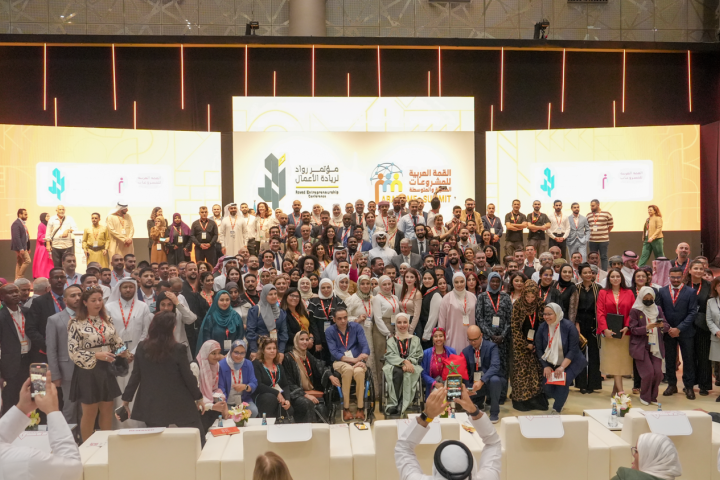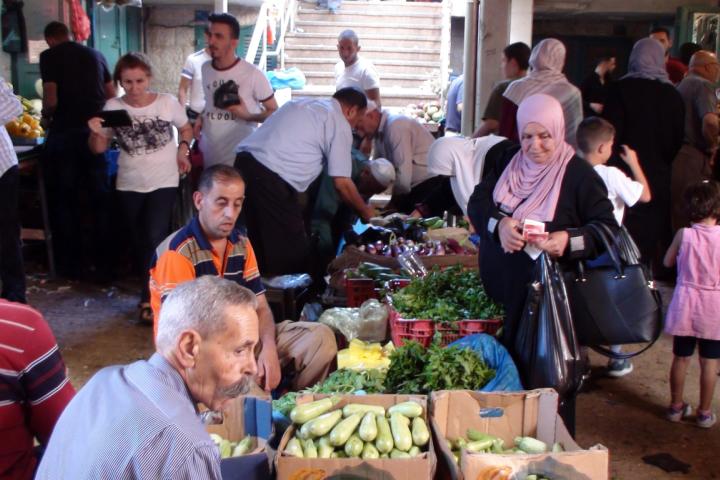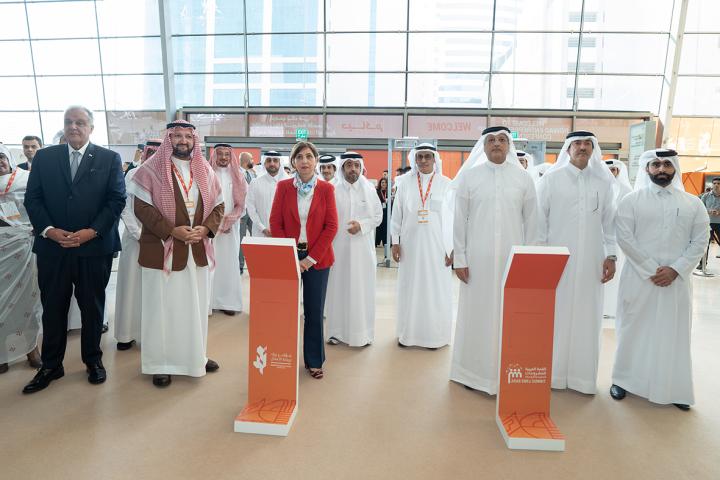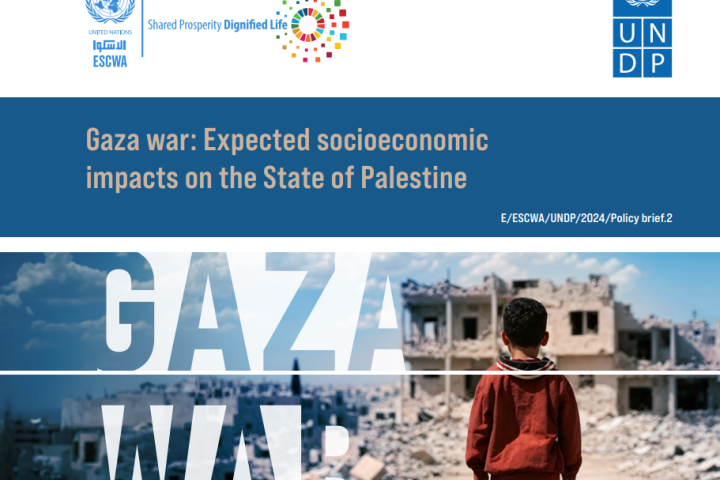On the occasion of International Women’s Day, ESCWA, in cooperation with the Resource Center for Gender Equality (ABAAD), held a commemoration entitled “Voices of Arab Women,” at the UN House, Beirut, with the participation of Second Vice Chair of the National Commission for Lebanese Women Lama Tammam Salam, and Lebanese Minister of Displaced Persons Alice Chabtini. Lebanese media figure Rabia Zayyat was master of ceremony at the event, which opened with a videotaped message from UN Secretary-General Ban Ki-moon for the occasion, and included speeches by Under-Secretary-General and ESCWA Executive Secretary Rima Khalaf, Minister Chabtini, and Judge and Member of the Libyan National Dialogue Commission Naima Jibril who tackled the issue of “Women in Decision Making”. Attendees listened to Singer and Poet Jaheda Wehbe, and Palestinian-American Poet and Scholar Lisa Suhair Majaj, who recited poetry from her collection “Geographies of Light”. Under the title “Women's Issues through the Lens of Films,” Palestinian-Lebanese filmmaker Carole Mansour presented a documentary on the status of women. Closing remarks for the ceremony were delivered by ESCWA Center for Women Director Samira Atallah who thanked the organizers and participants, and commended their efforts. In her statement, Khalaf said: “Women pictured on the covers of glossy magazines or featured in grim news reports do not represent Arab women. Neither do subjugated women who are kept out of sight, or those whose bodies are used in marketing and advertising. They are not the manifestations of orientalists’ imagination or the ‘awras’ whose parents’ fear for. On the contrary, Arab women represent a rich past and present; they are vocal, active and productive.” “Some Arab women currently either face civil war or foreign occupation; their children are taken from them either by hunger or by bombs. Many are either in detention or being sold in slave markets. Girls are being forced into early marriages in refugee camps, or are captured and raped on their way to them,” she added. Khalaf noted that: “today’s celebration brings to mind several brave faces that are trying to change the fate of women and girls; they understand that freedom is not choosing from the little that is on offer, but rather offering what appears to be impossible. We raise our proud voices to applaud Arab women’s struggle and their strong presence in our culture, poetry and art; in political and professional life; in medicine, economics and management; in times of peace and in times of war and occupation; and in their homelands and abroad. A struggle that is guiding us towards an Arab region committed to justice, equality and dignity for every man and woman.” She concluded by saying: “Today, we bow to all women standing tall, literally and figuratively, in long queues; at the entrances of factories and schools; in the face of oppression; under the harsh sun and in clouds of tear gas; and at the gates of a new future.” As for Chabtini, she expressed regret over the state of women, saying that it was shameful that in the 21st century, women were still subjected to injustice, discrimination, terrorism, and the obliteration of their rights, especially in third world countries, the Arab region included. “This negatively affects progress in the least developed societies,” she said. Chabtini added that while women enjoy some of the rights they deserve, they still lack many more. “Social justice cannot be achieved on this front without acceding to the highest levels of equality. This does not only entail working on the empowerment and support of women generally, but increasing social awareness, which would grant women their rights, giving them the chance to be free to create and effectively participate in building societies,” she said. Chabtini concluded her remarks by noting that Lebanese and Arab women will remain a model of women who fight for a refined and constantly renewed society. Delivering a statement under the title “Women in Decision Making,” Naima Jibril wondered: “What kind of celebration are we holding today while thousands of Arab women are living under Israeli occupation, while hundreds of Arab women are displaced, left without a home, lost, oppressed, and victims of violence, and when tens of Arab women had their lives ended unfairly, while hundreds of Arab women are captured, sold and bought in slave markets? While Arab women have been facing daunting challenges, notably religious extremism and patriarchal terrorism?” “The suffering of women has soared during the war, as they are the most vulnerable to discrimination, violence, abuse, exclusion and marginalization, despite their major contributions to revolutions, namely the modification of the stereotyped image of Arab women,” she added. Jibril concluded by saying: “Arab women have now found their way, and there is no going back. They must persevere on all levels to achieve real gains on the basis of citizenship, equal opportunities, and prospects for a better future.” * *** * Tweets and updates of the event can be found on: @ESCWACIU For your queries, kindly contact: ESCWA Communication and Information Unit (ECIU) on either of the following numbers: +961-70-993 144, +961-03-910 930, +961-76-04 64 02. Please direct your emails to: escwa-ciu@un.org
Related news
View all related updates
Commission
Secretariat
Our Clusters
Collaborate
Resources
Key Resources
Updates
Get in touch



